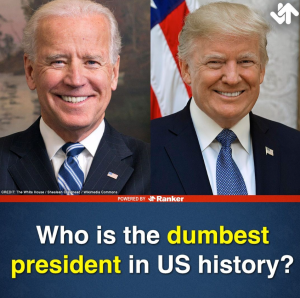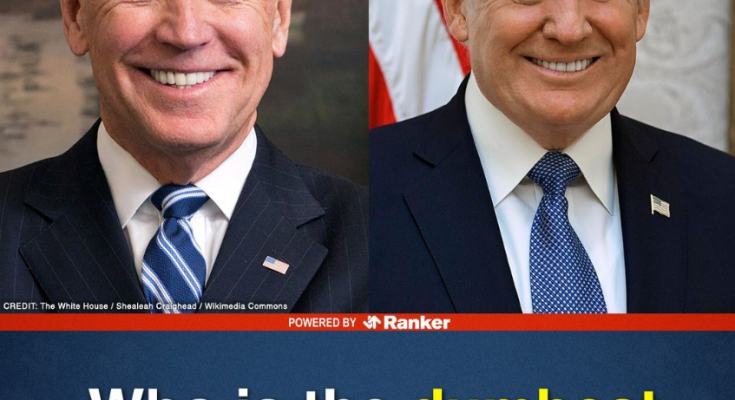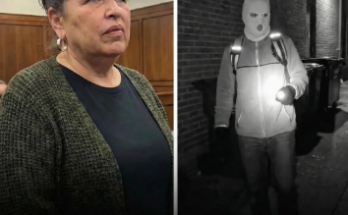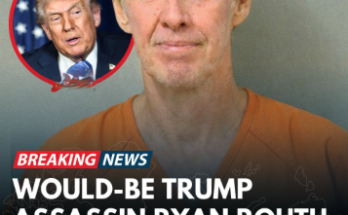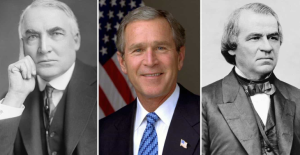
The Dumbest Presidents in US History
The office of the President of the United States is arguably the most powerful position in the world. It demands sharp intellect, quick decision-making, and a strong grasp of policy, diplomacy, and leadership. Yet, throughout history, not every president has been praised for their intelligence or decision-making abilities. Some presidents have become infamous for their poor choices, gaffes, or inability to navigate complex issues, earning a reputation—fair or unfair—of being among the “dumbest” in US history.
While intelligence is difficult to measure and leadership comes in many forms, public perception and historical analysis often focus on blunders and failures that had serious consequences. Here’s a look at a few presidents frequently criticized for their intellectual shortcomings or major missteps.
1. Warren G. Harding (1921–1923)
Warren G. Harding often tops lists of the worst presidents, not necessarily because he lacked intelligence outright, but because his administration was riddled with corruption, scandals, and poor judgment. Harding himself was seen as a somewhat complacent leader who was more interested in being popular than in policy or governance.
Though personally affable and well-liked, Harding appointed friends and cronies to high government positions — many of whom were incompetent or corrupt. The infamous Teapot Dome scandal, involving bribery over oil reserves, happened under his watch, tainting his legacy.
Harding’s inability to detect or control these corrupt influences led many historians to view him as politically naive and ineffective, which translates in public memory to a lack of smarts for the office.
2. James Buchanan (1857–1861)
James Buchanan is often criticized as one of the worst presidents for his failure to prevent the country’s slide into Civil War. His presidency was marked by indecision and an unwillingness to confront the growing sectional tensions between North and South.
Many historians argue Buchanan lacked the political courage and insight to navigate the nation through its gravest crisis. He believed states did not have the right to secede but also thought the federal government lacked power to stop them — a contradictory stance that paralyzed his administration.
His failure to take decisive action arguably paved the way for the Civil War, and as a result, Buchanan is often seen as lacking the critical thinking and leadership skills expected of a president.
3. Andrew Johnson (1865–1869)
Taking over after Lincoln’s assassination, Andrew Johnson faced the difficult task of Reconstruction. However, his presidency is widely regarded as a disaster, mostly due to his poor handling of post-Civil War policies.
Johnson was stubborn, often clashed with Congress, and vetoed legislation aimed at protecting freed slaves and rebuilding the South more equitably. His refusal to compromise and apparent ignorance of the political realities of the time alienated many and stymied progress.
While he wasn’t necessarily unintelligent, Johnson’s inability to grasp the complexities of Reconstruction and his tone-deaf approach to sensitive racial issues earned him criticism as a poor leader who failed to rise to the moment.
4. George W. Bush (2001–2009)
Modern presidents often come under intense media scrutiny, and George W. Bush was no exception. Throughout his presidency, he was frequently mocked for verbal slips, malapropisms, and what critics considered a simplistic approach to complex issues.
His handling of the Iraq War, in particular, drew harsh criticism, with many arguing that intelligence failures and poor decision-making led to disastrous consequences. The justification for the war—primarily the claim that Iraq possessed weapons of mass destruction—turned out to be false.
Bush’s perceived lack of intellectual rigor was often highlighted in popular culture, though supporters point to his decisive leadership after 9/11 and domestic policy initiatives.
5. Herbert Hoover (1929–1933)
Herbert Hoover entered the presidency with a reputation as a skilled engineer and humanitarian, but his tenure coincided with the onset of the Great Depression. Many criticize Hoover for his inadequate response to the economic crisis.
Hoover believed in limited government intervention, thinking the economy would self-correct. This hands-off approach failed to address the rapidly worsening conditions, leading to widespread suffering and unemployment.
Though intelligent in many ways, Hoover’s ideological rigidity and failure to adapt to the realities of the Depression contribute to the perception of poor leadership and shortsightedness.
6. Richard Nixon (1969–1974)
Richard Nixon was undeniably a complex figure. Intellectually sharp and politically savvy, Nixon achieved significant foreign policy successes, including opening relations with China. Yet, his presidency ended in disgrace due to the Watergate scandal.
Nixon’s involvement in the cover-up of illegal activities demonstrated a lack of judgment and ethical blindness. While not “dumb,” his paranoia and poor decisions contributed to the first presidential resignation in US history.
The Watergate scandal overshadowed his achievements, and the public often associates him more with corruption than intelligence.
7. Thomas Jefferson (1801–1809)
While Jefferson is widely admired as a founding father and author of the Declaration of Independence, some critics point to his contradictory views and decisions as evidence of intellectual shortcomings.
Jefferson was an advocate of small government and agrarianism, yet his policies sometimes contradicted these ideals, such as the Louisiana Purchase — which he questioned constitutionally but proceeded with anyway.
Though this doesn’t necessarily make him “dumb,” it reflects the complexities and occasional inconsistencies in his thinking.
Why Label Presidents as “Dumb”?
The term “dumb” is often a simplification rooted in public perception, political bias, or the lasting impact of certain decisions. Intelligence in leadership is multifaceted, encompassing emotional intelligence, judgment, political savvy, and knowledge.
Presidents operate under immense pressure with limited information. Mistakes can stem from incomplete data, overwhelming circumstances, or conflicting interests, rather than simple stupidity.
However, history tends to remember failures and blunders more vividly, especially when they lead to national crises, corruption, or war. These moments shape the public narrative around a president’s competence.
Conclusion
The label of “dumbest president” is more a reflection of public frustration and historical judgment than an absolute measure of intelligence. Presidents like Harding, Buchanan, and Hoover are often criticized for their poor leadership during critical moments, while others like Bush and Nixon faced intense scrutiny over controversial decisions and scandals.
Ultimately, the office of the presidency demands a balance of intellect, character, and circumstance. Mistakes are inevitable, but some presidents’ errors have left indelible marks that history remembers harshly.
The study of these presidencies offers lessons in leadership, decision-making, and the complex demands placed on those who hold the highest office in the land.